This important message was drawn after a series of conferences and exhibitions "Promoting tripartite cooperation in the industrial sector", which recently took place at Ho Chi Minh City University of Technical Education (HCMUTE).
The program is co-organized by HCMUTE, Vietnam Industrial Park Information Portal (VIZ), Ho Chi Minh City Industrial Park Enterprises Association (HBA) and Ho Chi Minh City Association of Supporting Industries (HASI).
The event gathered more than 300 delegates from management agencies, businesses, associations, international organizations and about 5,000 students.
This is an important step to concretize Resolution 57-NQ/TW of the Politburo on breakthroughs in science, technology, innovation and national digital transformation, 71-NQ/TW on breakthroughs in education and training development, towards establishing a strategic cooperation model between the State - schools - enterprises (three parties), creating a foundation for an innovative, sustainable and self-reliant Vietnamese industry.
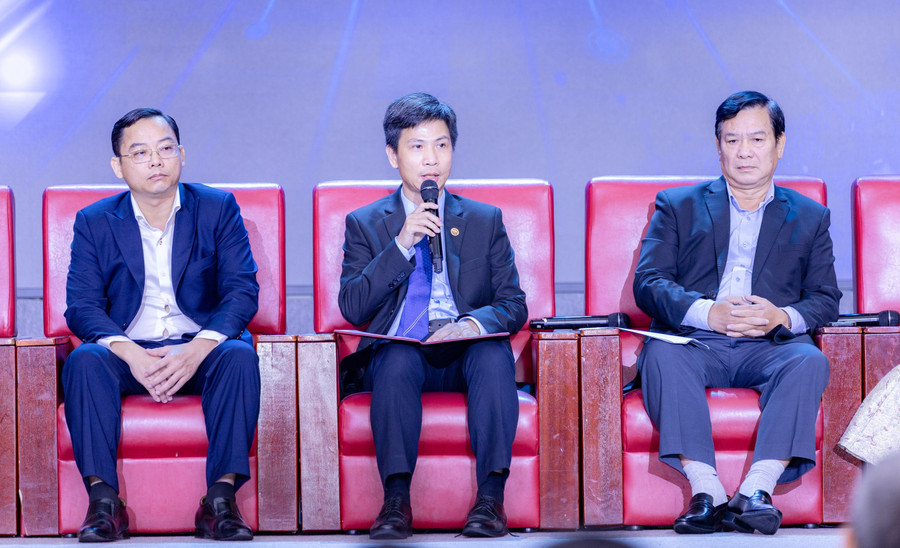
Three houses - the driving force of innovation
According to Dr. Tran Nam Tu, Deputy Director of the Department of Science, Technology and Information ( Ministry of Education and Training ), the three-way cooperation model has been successfully implemented in many developed countries such as the US, Korea, Japan, etc., contributing to the formation of a comprehensive innovation ecosystem.
In Vietnam, the development of this model has gone through many stages. Before 2010, it was the initial stage with isolated cooperation and training programs that were theoretical and lacked practice.
By the period 2010 - 2015, a policy framework connecting schools - businesses - the State was formed. However, the cooperation between the three parties at this time was still limited, lacking in sharing of benefits.
In the next phase, from 2016 to 2020, the tripartite cooperation will expand and institutionalize the model, focusing on training linked to business needs; however, coordination is still overlapping and lacks funding.
Currently, Vietnam is entering the stage of integration and development of the innovation ecosystem, focusing on coordinating interests between parties, creating a closed innovation chain according to Resolution 57.
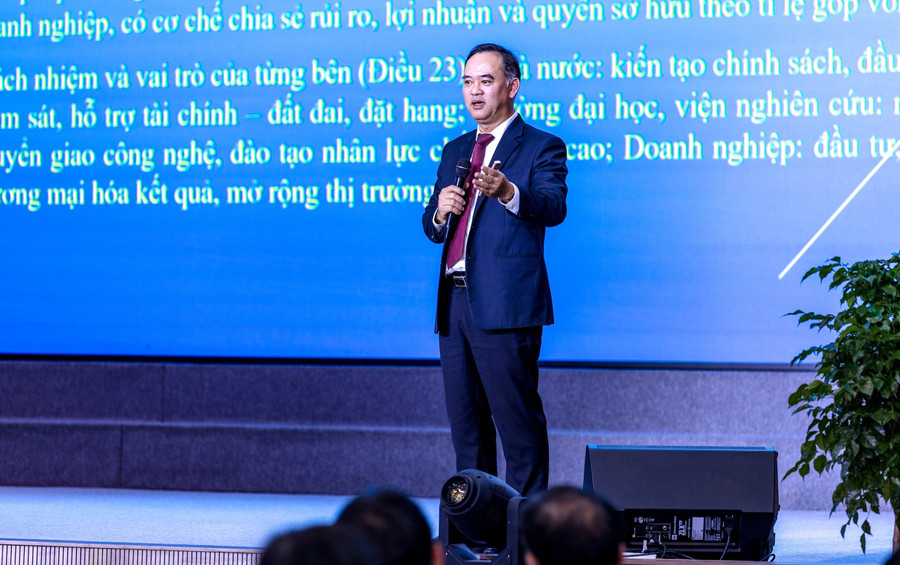
Mr. Tran Nam Tu said that the Law on Science, Technology and Innovation 2025 represents a strong shift from input management to output management and efficiency, while accepting risks in research to encourage innovation.
The legal framework for tripartite cooperation is institutionalized through Decree 180/2025 on mechanisms and policies for public-private cooperation in the field of science, technology, innovation and digital transformation development, allowing state agencies, universities, research institutes and enterprises to jointly invest, manage and operate science, technology and innovation projects under the PPP (public-private partnership) mechanism.
Accordingly, the parties enjoy investment incentives, tax exemptions and have the right to own, exploit and commercialize research results.
In particular, public universities and institutes are allowed to use public assets or intellectual property rights to contribute capital with enterprises; there is a mechanism for sharing risks, profits and intellectual property rights according to the capital contribution ratio.
Schools - the center of innovation and production transformation
Assoc. Prof. Dr. Le Hieu Giang, Rector of HCMUTE, emphasized that developing industrial human resources is not only an investment in people, but also a strategic lever to improve production capacity, promote green growth and affirm Vietnam's position in the global value chain. To do that, a substantial, long-term and mutually beneficial coordination mechanism is needed between the three parties.
Many opinions at the conference "Promoting tripartite cooperation in the industrial sector" affirmed that in the era of industry 4.0, universities are not only places to train human resources, but also must become centers of innovation and transformation of practical production - a place connecting research, production and the market.
The three-house model is similar to the approach of the world's leading universities, where applied research is linked to business orders, funded and technology transferred directly.
Giving schools a central role will expand the space for innovation, increase the ability to commercialize research results and contribute to the formation of a knowledge industry.
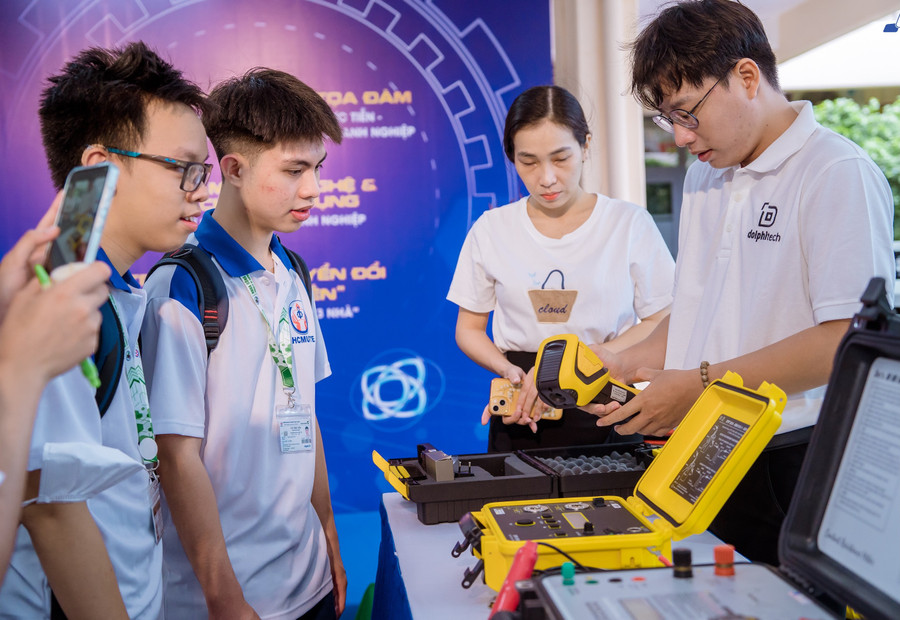
The highlight of the conference was the initiative to establish the Advanced Manufacturing Transformation Center (AMTC) - a result of cooperation between VIZ and HCMUTE.
AMTC is oriented to become a real connection platform between the three, a place to research, test and deploy transformation solutions suitable for Vietnamese enterprises, especially in industrial parks and manufacturing enterprises that are converting to a green - smart model.
In the context that Ho Chi Minh City is promoting the transformation of industrial parks and manufacturing enterprises towards net zero emissions, AMTC expects to become a strategic partner in the process of realizing the action programs of the State and enterprises, towards sustainable, effective industrial development and international integration.
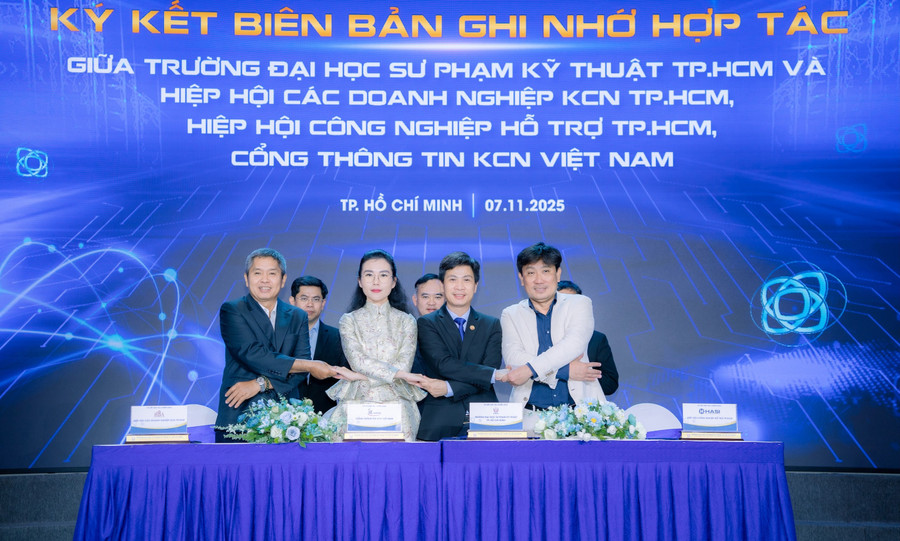
At the conference, HCMUTE signed many cooperation agreements with businesses and organizations in the fields of: Training high-tech human resources associated with production practices; R&D cooperation and technology transfer; Promoting smart production models and sustainable development.
Source: https://giaoducthoidai.vn/lien-ket-ba-nha-la-dong-luc-cho-cong-nghiep-ben-vung-post755873.html



![[Photo] Cutting hills to make way for people to travel on route 14E that suffered landslides](https://vphoto.vietnam.vn/thumb/1200x675/vietnam/resource/IMAGE/2025/11/08/1762599969318_ndo_br_thiet-ke-chua-co-ten-2025-11-08t154639923-png.webp)




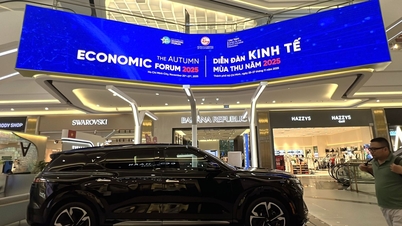





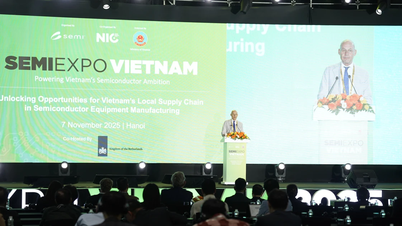

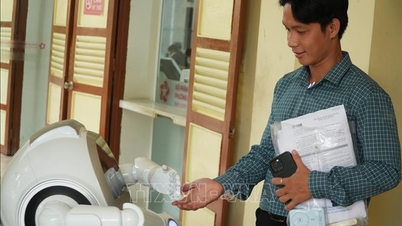
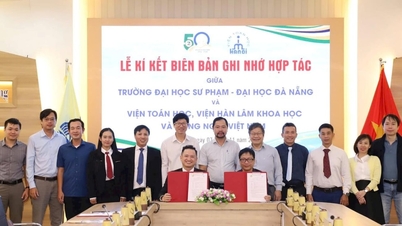

![[Video] University of Foreign Languages - Vietnam National University, Hanoi received the First Class Labor Medal](https://vphoto.vietnam.vn/thumb/402x226/vietnam/resource/IMAGE/2025/11/08/1762614378165_gen-h-z7203450341291-b1f427bb0cccc706a5bcc4b985f90a70-7234-jpg.webp)


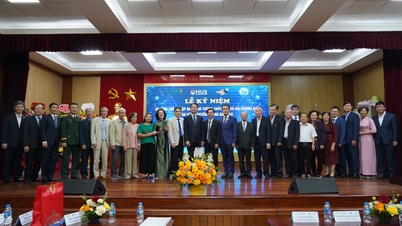



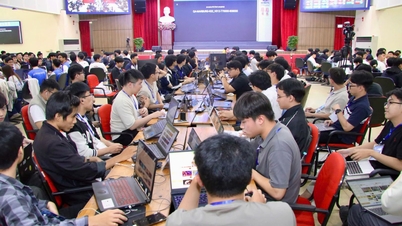

















![[Video] Hue Monuments reopen to welcome visitors](https://vphoto.vietnam.vn/thumb/402x226/vietnam/resource/IMAGE/2025/11/05/1762301089171_dung01-05-43-09still013-jpg.webp)












































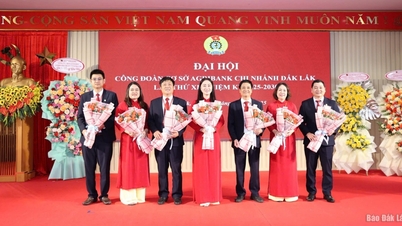



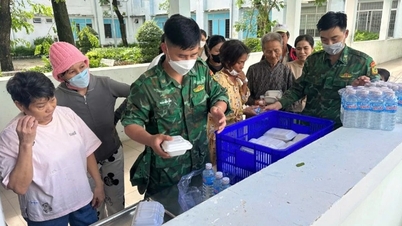
















Comment (0)